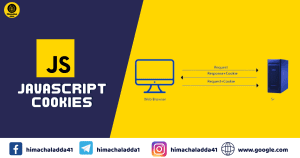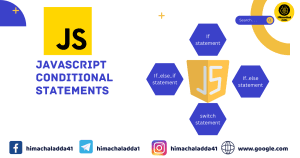PHP and Advantages of PHP
PHP is a server-side scripting language, which means it runs on the web server and helps create web pages that change and respond to what users do. PHP is mainly used for web development .It can generate dynamic web pages, interact with databases, handle forms, send and receive cookies, and perform many other tasks that involve the back-end of a website. PHP stands for “PHP: Hypertext Preprocessor” and it was created by Rasmus Lerdorf in 1994.
The basic syntax for PHP is as follows:
- A PHP script can be placed anywhere in the document, but it usually starts with <?php and ends with ?> .
- The default file extension for PHP files is “.php”.
- A PHP file normally contains HTML tags and some PHP scripting code.
- PHP statements end with a semicolon (;).
Here is an example of a simple PHP file that outputs “Hello World!” on a web page.
<html>
<head>
<title>PHP Example</title>
</head>
<body data-rsssl=1>
<h1>My PHP page</h1>
<?php
echo "Hello World!";
?>
</body>
</html>
PHP and Advantages of PHP
Advantages of PHP:
- It’s fast : PHP is embedded in HTML code and its response time is short.
- Easy to Learn: PHP is relatively easy to learn and use. It has simple and understandable syntax, making it a good choice for beginners in web development.
- Open Source: PHP is open-source software, which means it’s free to use and has a large community of developers constantly improving it. This also means there are many free resources and tools available for PHP development.
- Cross-Platform: PHP works on various operating systems like Windows, macOS, and Linux. This cross-platform compatibility makes it versatile for different hosting environments.
- Integration: PHP can easily integrate with various databases, including MySQL, PostgreSQL, and more. This makes it powerful for creating dynamic web applications that store and retrieve data.
- Scalability: PHP is suitable for both small websites and large-scale web applications. It can handle high traffic volumes and is used by many popular websites and platforms.
- Community and Support: PHP has a massive and active community of developers worldwide. This means we can find help, resources, and pre-built code (called libraries or frameworks) to speed up our development.
- Security Features: PHP includes security features to help protect websites from common threats, such as data injection attacks.
- Versatility: PHP can be embedded directly into HTML, making it easy to mix code and content. This versatility allows you to create web pages with dynamic content seamlessly.
- Cost-Effective: Since PHP is open source, there are no licensing fees associated with using it, which can be cost-effective for businesses and developers.




